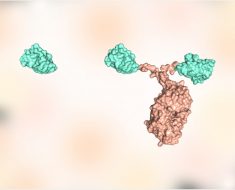
Children with autism may be good at reading a text one word at a time, but simultaneously have problems in understanding and retelling the content of what they read. Research now shows the importance, for these children, of extensive language assessment and follow-up over time.
“It’s usually a deviant language development that parents worry about first,” says Emilia Carlsson, Ph.D. at Sahlgrenska Academy, University of Gothenburg, and a licensed and registered speech and language pathologist at the Gillberg Neuropsychiatry Centre in Gothenburg.
For her thesis, she studied language ability in children with autism. She started with a large group, identified through screening at child health centers, who had already been diagnosed by two and a half years of age. Of these, 85 children were followed up by speech and language pathologists at age seven or eight. In parallel, a control group of more than 100 children without autism were recruited at preschool and compulsory school.
Risk of overestimation
About half of the children with autism proved to find reading difficult, while roughly a third were able to read well. Some children with autism were adept at single-word reading but had difficulty in understanding the text, which might result in others overestimating their reading ability.
The results also showed that the children with autism found narration difficult. Their retellings were shorter and less complex, compared not only with their peers but also with younger children without autism who were otherwise at the same language level.
Ability to retell a story proved to be linked to both language proficiency and visual, nonverbal ability. The latter was tested by asking the children to arrange pictures in the right order to create a logical sequence of events.
Long-term follow-up important
Carlsson’s research showed an association between early language ability and subsequent reading skill. Children with autism who could read well at age eight had already shown superior linguistic ability at age three, while the older children who had problems with reading had experienced more severe early language difficulties as well.
Undergoing comprehensive language assessment and also being followed up by speech and language pathologists over time may therefore be described as key elements in the care and nurture of children with autism.
Source: Read Full Article





